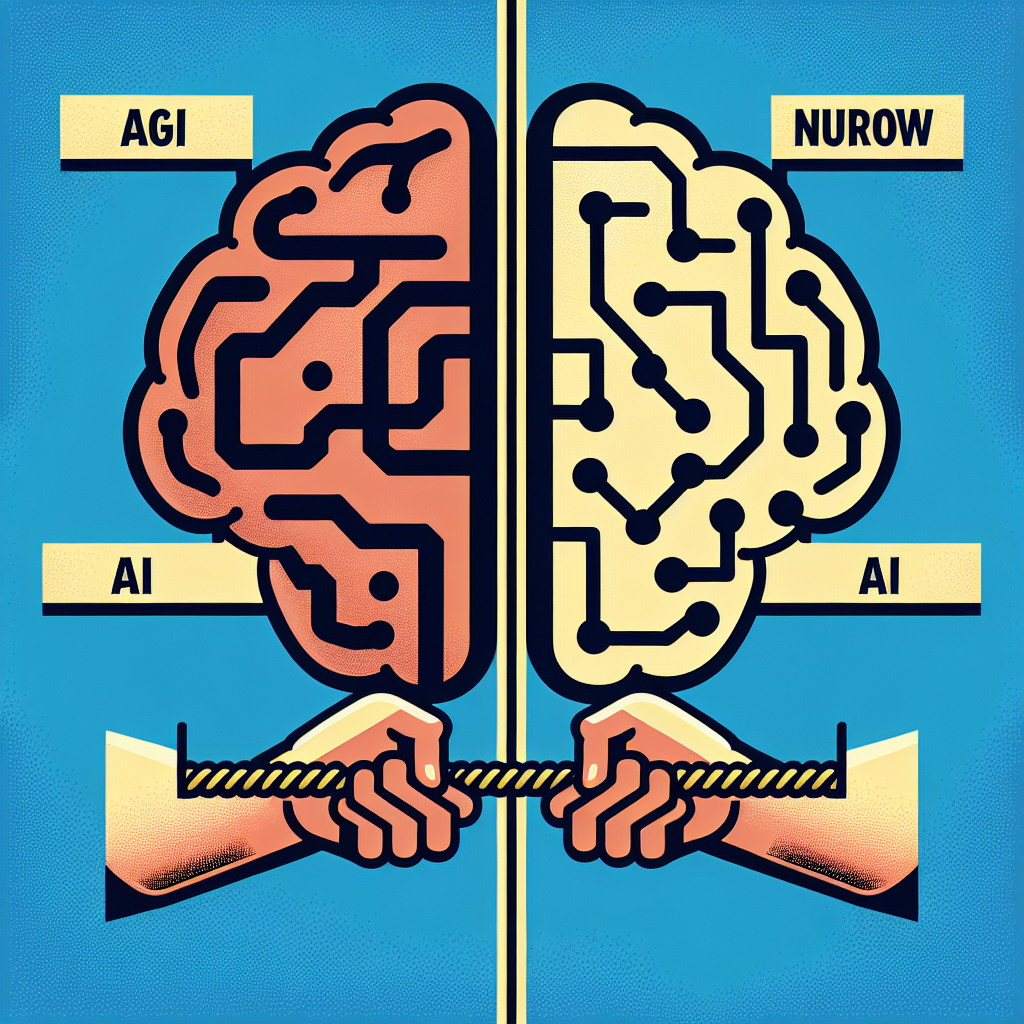Artificial Intelligence (AI) has become an increasingly prevalent topic in today’s world, with applications ranging from virtual assistants like Siri and Alexa to self-driving cars and predictive analytics in various industries. However, within the realm of AI, there are two main categories that often come up in discussions: Artificial General Intelligence (AGI) and Narrow AI. In this article, we will explore the differences between AGI and Narrow AI, as well as the implications of each for society and the future of technology.
AGI vs. Narrow AI: What’s the Difference?
Artificial General Intelligence (AGI) refers to AI systems that have the ability to understand, learn, and apply knowledge in a wide range of tasks, much like a human being. These systems are capable of performing any intellectual task that a human can do, and they have the ability to adapt and improve over time. AGI is often considered the holy grail of AI research, as it represents the ultimate goal of creating machines that are as intelligent as humans.
On the other hand, Narrow AI refers to AI systems that are designed for a specific task or set of tasks. These systems are limited in their capabilities and are not able to generalize their knowledge to other tasks or domains. Examples of Narrow AI include image recognition software, speech recognition systems, and recommendation engines. While Narrow AI can be incredibly powerful and useful in specific applications, it lacks the flexibility and adaptability of AGI.
Implications of AGI and Narrow AI
The differences between AGI and Narrow AI have significant implications for society and the future of technology. AGI has the potential to revolutionize virtually every aspect of human life, from healthcare and transportation to education and entertainment. With AGI, we could see breakthroughs in medical research, the development of truly autonomous vehicles, and the creation of intelligent virtual assistants that can understand and respond to human emotions.
However, the development of AGI also raises a number of ethical and societal concerns. For example, there are fears that AGI could surpass human intelligence and become uncontrollable, leading to a dystopian future where machines dominate society. There are also concerns about the impact of AGI on the job market, as intelligent machines could potentially replace human workers in a wide range of industries.
On the other hand, Narrow AI is already having a significant impact on society, with applications in everything from finance and marketing to healthcare and transportation. Narrow AI has the potential to improve efficiency, accuracy, and productivity in a wide range of industries, leading to cost savings and increased innovation. However, there are also concerns about the potential for bias and discrimination in Narrow AI systems, as well as the impact of automation on jobs and the economy.
FAQs
Q: Will AGI surpass human intelligence?
A: It is difficult to predict whether AGI will surpass human intelligence, as this depends on a wide range of factors, including the capabilities of the AI systems themselves and the ethical and regulatory frameworks governing their development.
Q: How will AGI impact the job market?
A: The impact of AGI on the job market is a topic of hot debate among experts. While some believe that AGI could lead to widespread job loss as machines take over tasks traditionally performed by humans, others argue that AGI could create new job opportunities in fields such as AI development and maintenance.
Q: Are there any ethical concerns surrounding AGI?
A: Yes, there are numerous ethical concerns surrounding AGI, including fears about the potential for AGI to surpass human intelligence and become uncontrollable, as well as concerns about the impact of AGI on privacy, security, and human rights.
In conclusion, the differences between AGI and Narrow AI highlight the potential for both revolutionary advancements and significant challenges in the field of artificial intelligence. While AGI holds the promise of machines that are as intelligent as humans, it also raises a number of ethical and societal concerns. In contrast, Narrow AI is already having a significant impact on society, with applications in a wide range of industries. As we continue to explore the possibilities of AI, it will be important to consider the implications of both AGI and Narrow AI for the future of technology and society.

